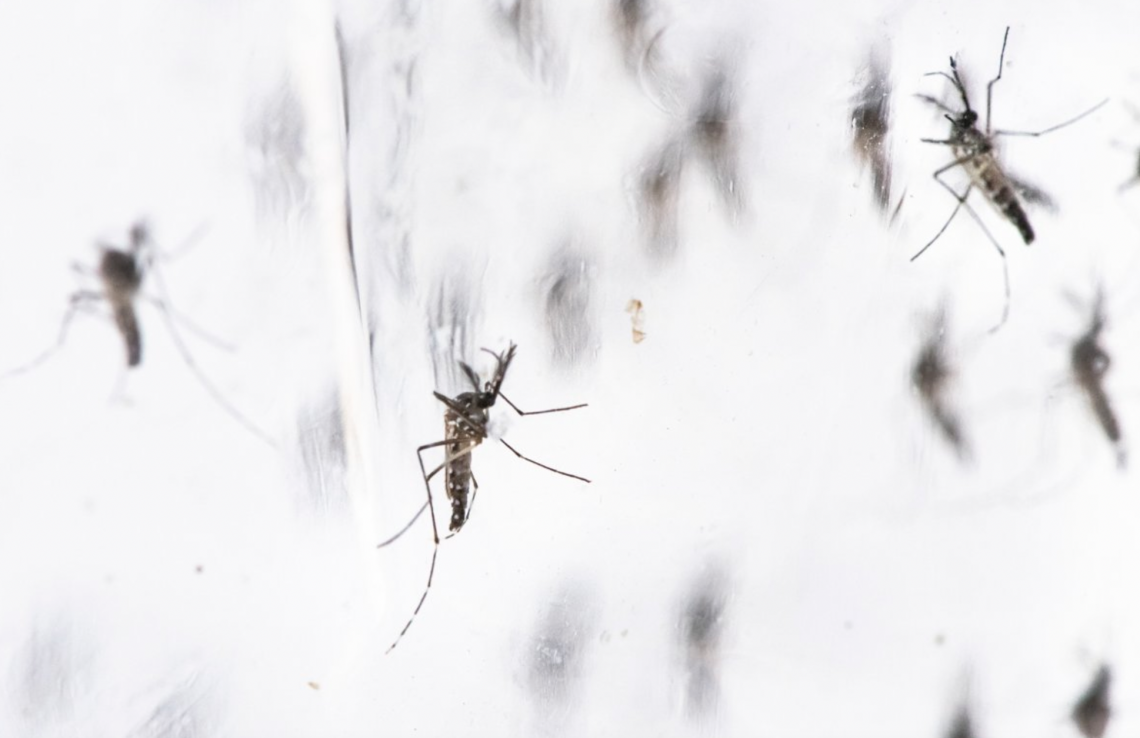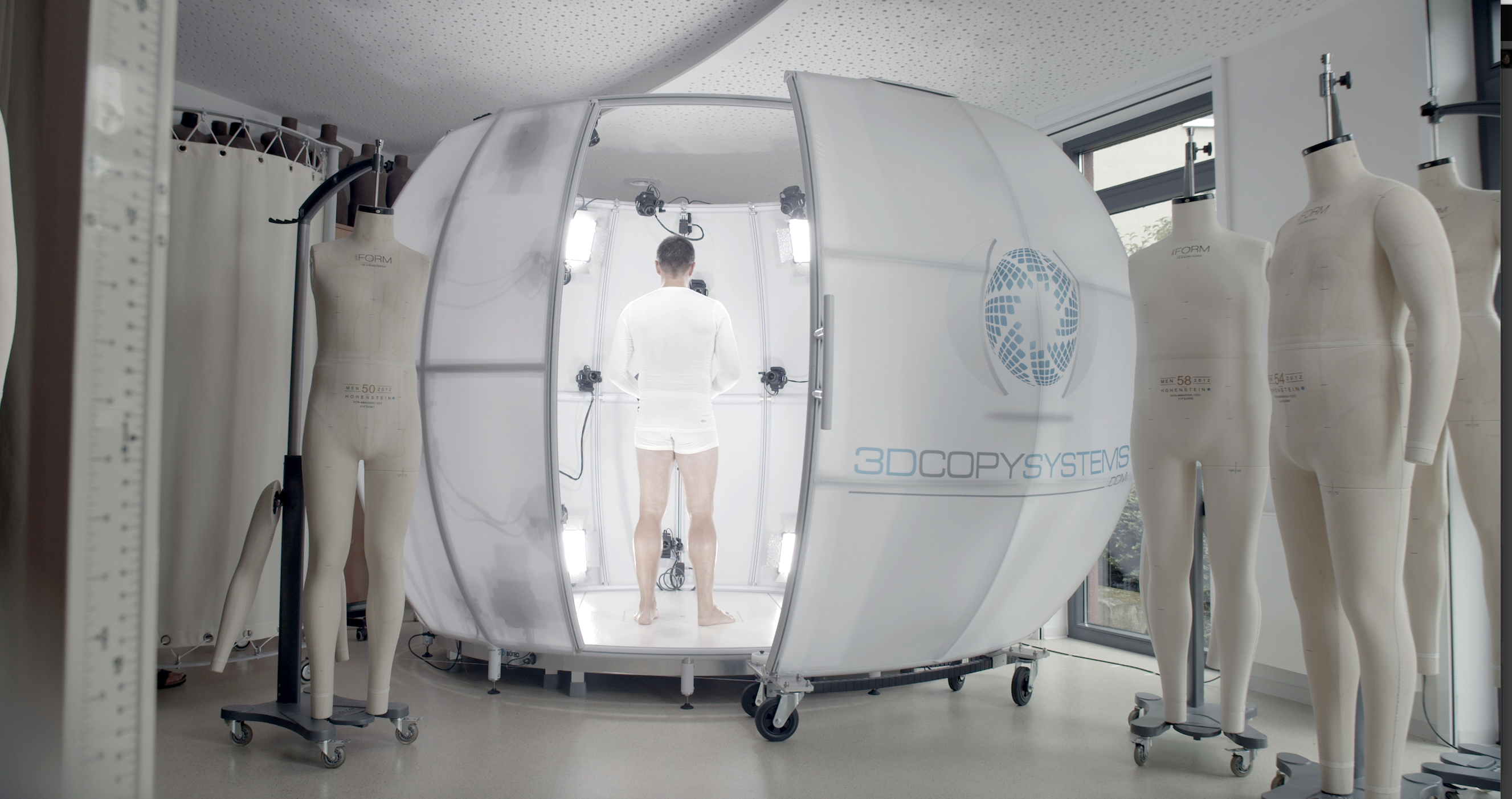It has taken 20 years for Oxitec, a developer of biological pest control, to move from the lab to commercial solutions in the field. Over the last decade it has released over a billion of its non-biting male mosquitos into the environment, primarily in Brazil, in a bid to help control the invasive Aedes aegypti, the vector of dengue fever, Zika, yellow fever and chikungunya to humans. It also piloting this technology to combat pests that destroy crops and harm livestock around the world. And it is just getting started.
The company, a member of The World Economic Forum’s New Champions community, has morphed from a science-focused biotech company into a solutions provider that sells directly to governments, businesses, and consumers. Along the way it has changed CEOs and owners and overcome regulatory hurdles and concerns about genetic engineering. And, with the November 2021 commercial launch in Brazil of its solution to control the dengue-spreading Aedes aegypti mosquito without the necessity of pesticides, Oxitec is starting to show how profitability can be compatible with sustainability. Its journey provides some valuable insights on how to become a future-ready SME and achieve impact.
“Oxitec’s illustrates the type of impact our New Champions can have with their business,” says Julia Devos, Head of the Forum’s New Champions Community.“It’s trajectory from the lab to the field highlights important factors at play in different phases of the development and growth of a company that I believe will be of interest to other business leaders.”
Biological Pest Control
Oxitec was founded in 2002 at the University of Oxford by two scientists, Luke Alphey and David Kelly. They bioengineered male Aedes aegypti mosquitoes, which don’t bite, to mate with the wild female population, responsible for biting prey and transmitting disease. The genetically engineered males carry a gene that passes to their offspring and kills females in early larval stages. Male offspring don’t die but instead become carriers of the gene and pass it to future generations. The solution aims to serve as a kind of biological pesticide, with no harm to the environment. The same approach can work on other pests, such as ticks, flies, beetles, and moths, that share a set of key traits: reproduces by mating, amenable to artificial production and lifecycle of a few months of less.
The potential for impact is promising but building a science-based business takes time. “The first ten years was spent developing the technology, given how groundbreaking this was,” says CEO Grey Frandsen.” The next five years was spent showing the world that it works and is completely safe. Our technology has been studied and analysed by independent researchers, academics, and independent collaborators, with more than 100 scientific, peer-reviewed papers published on our work. And the last five years have been spent preparing to deploy our technology at scale. We are now ready to make an impact.”
Moving From The Lab To Homes And Businesses
Oxitec’s move from the lab to applications in homes, businesses and farms comes after several changes in its leadership. The company was first headed by scientists, then by a biotech industry executive. Frandsen, the current CEO, was hired in 2017, bringing in a fresh perspective. He previously worked for the U.S. State Department, served as chairman of the Board of Directors for Pilgrim Africa, a small NGO implementing novel malaria prevention strategies in Uganda and co-founded PICnet, a 20-year-old web technology company that serves governments, nonprofits, international organizations, foundations, and NGOs working in human rights, public health, humanitarian emergencies, gender equality, advocacy, conflict, and policy.
Frandsen says he sees the company’s mission as using the next generation of pest control to save lives and improve livelihoods. “I’m not a scientist,” he says. “My life’s work has been focused on solving big challenges. I’ve had malaria twice so this is very personal. It is a mistake to be overly fixated on the technology. It is just a part of the story. I want us to focus on those we service and what they need, how they view problems and how they want to interact. We start there, not on DNA construct.”
The company is proud that it has top molecular biologists on its payroll but Frandsen says one of his early moves was to hire people who “can’t tell you what a DNA strand looks like” including marketing experts, partnership specialists, public health and agricultural experts, entrepreneurs, community engagement specialists, communications gurus, product specialists, data science experts, operations and safety experts and regulatory and government affairs experts. “That was fundamental in our ability to transform from a biotech company to a solutions company that is actually having an impact,” he says.
Oxitec’s business model makes the company the first vertically integrated biotech company to deliver pest control solutions directly to end-users. The company has built an innovation and production center in the industrial city of Campinas to ramp up its commercial rollout in Brazil.
Its customers include individual consumers, hotels, bus terminals and factories. The Sao Paulo bus terminal, the largest in South America with some 90,000 people moving through it each day, is among the company’s customers. So are large factories. “When I talk with CEOs of large manufacturing plants, they tell us they lose 3% to 5% of labor productivity” due to mosquito-borne diseases, Frandsen says.
Oxitec’s products are also being embraced by individuals, says Frandsen. Selling genetically modified pests directly to consumers “is ground-breaking for us,” he says. “It is the manifestation of our drive to democratize these tools because up until now a broad range of stakeholders have been left out. Today most places that suffer from dengue and malaria suffer in part because of a lack of government infrastructure and people have no tools to carry out the fight on their own.”
Oxitec’s just-add-water mosquito boxes are designed specifically for use by homeowners, businesses, and communities to control the dengue-spreading Aedes aegypti mosquito. Available for purchase online, the product comprises durable outer boxes and male mosquito egg refill packs. Once delivered, customers need only to add water to the box, place it in a garden, patio, or around a home or business, and the boxes will produce Oxitec’s non-biting male mosquitoes over time, which disperse to find and mate with invasive, biting Aedes aegypti females. Their female offspring cannot survive, which means fewer biting female mosquitoes in the following generations. Oxitec says its technology controls the pest without harming beneficial species like bees and butterflies and does not persist in the environment.
The launch of the just-add-water boxes in the Brazilian state of São Paulo represent the first time globally that the benefits of using biologically engineered mosquito control technology can be purchased directly by consumers. “This changes the mindset about who has a role to play,” says Frandsen. “We have answered the question of whether consumers will take up arms. We learned they will use the product and they will love the product.”
Consumers and businesses are looking for sustainable solutions that don’t force a trade-off between effectiveness and protecting the environment, he says. “Instead of buying pest control in neon cans at hyper markets we are offering them a joyful experience and the ability to interact with us as a company and form a long-term relationship.”
Oxitec uses the trademarked name “Friendly” in its product lines. It hires advertising agencies and marketing firms to help it engage with consumers. To that end Frandsen says the company created one of the world’s most successful social media campaigns for a pest control product, garnering six million views on just one of its videos. Oxitec says it has also won over the media and that press coverage in Brazil has been “95% positive.”
The firm learned the importance of engaging consumers the hard way. For example, a field trial in the Cayman Islands in 2009 generated criticism that the company had rushed a genetically modified organism into the field without properly consulting the public, leading to a backlash, according to an article published by science.org.
And in 2012 when Oxitec was preparing a trial in the Key West one Florida resident gathered 100,000 names of people opposed to the release of the mosquitos, according to a July 2012 story in Nature.
Due to a circuitous series of regulatory decisions and the pushback from Florida residents until May of last year no genetically engineered mosquito had been trialled in the United States — even though the country previously allowed tests of Oxitec’s genetically engineered diamondback moth (Plutella xylostella) in New York and its engineered pink bollworm (Pectinophora gossypiella) in Arizona, according to a more recent story in Nature.
Oxitec says it has actively engaged with the public to win acceptance of its technology in countries where it has piloted its technology over the past 10 years. It received regulatory approval to release genetically engineered mosquitoes into the open air in the United States for the first time in 2021. And, on May 4 Oxitec announced that it had received federal approval by the U.S. EPA and state approval from the Florida Department of Agriculture and Consumer Services that included input from local agencies to continue its 2021 pilot in the Florida Keys. The company is also planning to launch a pilot in California.
Oxitec learned that it is important to lay the groundwork for a new market by being transparent and getting all the stakeholders on board, something that is becoming increasingly important for all companies and not only highly regulated businesses. “We think a lot about how to build and nurture trust,” says Frandsen.
Getting The Right Partners in Place
The company has also put a lot of time into getting the right investors and partnerships in place, he says.
The company was sold in 2015 to a U.S. synthetic biology company called Intrexon. In early 2020, Intrexon decided to divest after narrowing its focus to human gene editing and adopting the name of its subsidiary, Precigen. It sold Oxitec to Randal J. Kirk, Intrexon’s former CEO, who bought the company through Third Security LLC, which serves as both a family office and a manager of a portfolio of operating biotechnology companies.
Some key partnerships and outside funding have helped Oxitec transition from the lab to the field.
In 2021 Oxitec announced that it has received $6.8 million in funding from the Wellcome Trust, one of the world’s largest charitable foundations, to fund scale-up programs for Oxitec’s to control the dengue-spreading Aedes aegypti mosquito. Building on the successful performance of the technology in Brazil, the Wellcome Trust is helping fund Oxitec’s work on new production scale-up innovations, product features and methodologies that are focused on reducing costs and improving accessibility of the technology for those communities suffering most from Aedes aegypti-transmitted diseases.
Oxitec has been working with the Bill & Melinda Gates Foundation to develop a self-limiting mosquito strain to combat malaria since 2018 and in April of this year announced it had received $18 million in new investment from the foundation to expand to pilot phases in two malaria-affected regions. The pilots will test Oxitec’s approach to combatting two malaria-spreading mosquitoes: the invasive Anopheles stephensi, which is predicted to cause urban malaria epidemics across Africa and Anopheles albimanus, which is slowing malaria eradication efforts in the Americas, by testing them in communities living under daily threat of this disease.
In May of last year Oxitec launched a program, with another investment from the Bill & Melinda Gates Foundation, to use Oxitec’s approach to control the Asian blue tick or Rhipicephalus microplus, which causes billions of dollars in damage and losses by parasitic blood-feeding on livestock and transmitting diseases that lead to high rates of cattle mortality. Originally native to Asia, the tick has spread around the world. The program, which also involves a partnership with Clingobal, one of the largest science-based animal health service providers and leading experts in tick research, aims to offer cattle farmers a new way of protecting the health of their animals without the use of chemical pesticides.
Oxitec is also testing the bio-engineering of fall armyworm, in partnership with Bayer, the German multinational pharmaceutical and life sciences company. Fall armyworms, a type of pest moth, are estimated to cost farmers more than $10 billion in annual crop damage and losses, particularly on corn. They are native to the Americas, but in recent years fall armyworm moths have crossed oceans to reach Africa, Asia, and Australia, presenting a significant new threat to farmers and food security around the world. In Brazil the fall armyworm has developed resistance to existing crop protection tools, including biotech corn varieties, meaning farmers need to spray more insecticides and their yields are reduced. To combat this issue CTNBio, the Brazilian regulator, has approved use of Oxitec’s technology
.“We benefit from having a strong tech platform with multiple applications across multiple industries and geographies,” says Frandsen. “That has allowed us to demonstrate that we can have an impact and align everyone around our mission. Everyone participating is fully committed – inside the company but also our investors and partners – on why we are doing what we are doing and how we are going to have an impact globally.”
Building The Right Culture
Another key to the company’s ability to scale has been putting the right employees in place and a “purposeful commitment to building and sustaining culture,” he says. That is easier said than done since the company has more than doubled its staff in the past year. “We are not perfect but it’s a mission value,” says Frandsen. “It is on the agenda, we are talking about it, measuring it and are self-critical. Not all of our peers are doing that.”
Instilling the company culture in employees starts before someone joins. “We communicate our values and principles during the interview process so that by the time we have vetted them, and they have vetted us, we can tell if it is a good fit,” he says.
The company’s values resonate with employees, he says. “Our people are exceptionally engaged,” he says. “We survey them every quarter and they are happier than employees at the largest and most fun companies in Silicon Valley that have slides instead of staircases,” he says.
To foster a climate of innovation we give people “freedom but then we expect a greater deal of accountability,” says Frandsen. “The big lessons are balance freedom and accountability and align people with your values.”
So where does the company go from here? “Up,” says Frandsen. “We are going to make an impact and pay tribute to the hundreds of people and dozens of organizations who got us to where we are today. We are going to honor their work and the careers that have been focused on getting us here.”
This article is content that would normally only be available to subscribers. Sign up for a four-week free trial to see what you have been missing.







